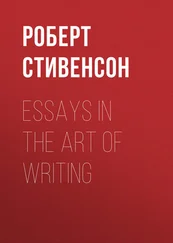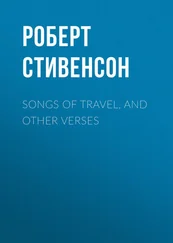Роберт Стивенсон - Across the Plains, with Other Memories and Essays
Здесь есть возможность читать онлайн «Роберт Стивенсон - Across the Plains, with Other Memories and Essays» — ознакомительный отрывок электронной книги совершенно бесплатно, а после прочтения отрывка купить полную версию. В некоторых случаях можно слушать аудио, скачать через торрент в формате fb2 и присутствует краткое содержание. Жанр: literature_19, foreign_antique, foreign_prose, на английском языке. Описание произведения, (предисловие) а так же отзывы посетителей доступны на портале библиотеки ЛибКат.
- Название:Across the Plains, with Other Memories and Essays
- Автор:
- Жанр:
- Год:неизвестен
- ISBN:нет данных
- Рейтинг книги:4 / 5. Голосов: 1
-
Избранное:Добавить в избранное
- Отзывы:
-
Ваша оценка:
- 80
- 1
- 2
- 3
- 4
- 5
Across the Plains, with Other Memories and Essays: краткое содержание, описание и аннотация
Предлагаем к чтению аннотацию, описание, краткое содержание или предисловие (зависит от того, что написал сам автор книги «Across the Plains, with Other Memories and Essays»). Если вы не нашли необходимую информацию о книге — напишите в комментариях, мы постараемся отыскать её.
Across the Plains, with Other Memories and Essays — читать онлайн ознакомительный отрывок
Ниже представлен текст книги, разбитый по страницам. Система сохранения места последней прочитанной страницы, позволяет с удобством читать онлайн бесплатно книгу «Across the Plains, with Other Memories and Essays», без необходимости каждый раз заново искать на чём Вы остановились. Поставьте закладку, и сможете в любой момент перейти на страницу, на которой закончили чтение.
Интервал:
Закладка:
At last we were admitted into the cars, utterly dejected, and far from dry. For my own part, I got out a clothes-brush, and brushed my trousers as hard as I could till I had dried them and warmed my blood into the bargain; but no one else, except my next neighbour to whom I lent the brush, appeared to take the least precaution. As they were, they composed themselves to sleep. I had seen the lights of Philadelphia, and been twice ordered to change carriages and twice countermanded, before I allowed myself to follow their example.
Tuesday . – When I awoke, it was already day; the train was standing idle; I was in the last carriage, and, seeing some others strolling to and fro about the lines, I opened the door and stepped forth, as from a caravan by the wayside. We were near no station, nor even, as far as I could see, within reach of any signal. A green, open, undulating country stretched away upon all sides. Locust trees and a single field of Indian corn gave it a foreign grace and interest; but the contours of the land were soft and English. It was not quite England, neither was it quite France; yet like enough either to seem natural in my eyes. And it was in the sky, and not upon the earth, that I was surprised to find a change. Explain it how you may, and for my part I cannot explain it at all, the sun rises with a different splendour in America and Europe. There is more clear gold and scarlet in our old country mornings; more purple, brown, and smoky orange in those of the new. It may be from habit, but to me the coming of day is less fresh and inspiriting in the latter; it has a duskier glory, and more nearly resembles sunset; it seems to fit some subsequential, evening epoch of the world, as though America were in fact, and not merely in fancy, farther from the orient of Aurora and the springs of day. I thought so then, by the railroad side in Pennsylvania, and I have thought so a dozen times since in far distant parts of the continent. If it be an illusion it is one very deeply rooted, and in which my eyesight is accomplice.
Soon after a train whisked by, announcing and accompanying its passage by the swift beating of a sort of chapel bell upon the engine; and as it was for this we had been waiting, we were summoned by the cry of “All aboard!” and went on again upon our way. The whole line, it appeared, was topsy-turvy; an accident at midnight having thrown all the traffic hours into arrear. We paid for this in the flesh, for we had no meals all that day. Fruit we could buy upon the cars; and now and then we had a few minutes at some station with a meagre show of rolls and sandwiches for sale; but we were so many and so ravenous that, though I tried at every opportunity, the coffee was always exhausted before I could elbow my way to the counter.
Our American sunrise had ushered in a noble summer’s day. There was not a cloud; the sunshine was baking; yet in the woody river valleys among which we wound our way, the atmosphere preserved a sparkling freshness till late in the afternoon. It had an inland sweetness and variety to one newly from the sea; it smelt of woods, rivers, and the delved earth. These, though in so far a country, were airs from home. I stood on the platform by the hour; and as I saw, one after another, pleasant villages, carts upon the highway and fishers by the stream, and heard cockcrows and cheery voices in the distance, and beheld the sun, no longer shining blankly on the plains of ocean, but striking among shapely hills and his light dispersed and coloured by a thousand accidents of form and surface, I began to exult with myself upon this rise in life like a man who had come into a rich estate. And when I had asked the name of a river from the brakesman, and heard that it was called the Susquehanna, the beauty of the name seemed to be part and parcel of the beauty of the land. As when Adam with divine fitness named the creatures, so this word Susquehanna was at once accepted by the fancy. That was the name, as no other could be, for that shining river and desirable valley.
None can care for literature in itself who do not take a special pleasure in the sound of names; and there is no part of the world where nomenclature is so rich, poetical, humorous, and picturesque as the United States of America. All times, races, and languages have brought their contribution. Pekin is in the same State with Euclid, with Bellefontaine, and with Sandusky. Chelsea, with its London associations of red brick, Sloane Square, and the King’s Road, is own suburb to stately and primeval Memphis; there they have their seat, translated names of cities, where the Mississippi runs by Tennessee and Arkansas; 1 1 Please pronounce Arkansaw, with the accent on the first.
and both, while I was crossing the continent, lay, watched by armed men, in the horror and isolation of a plague. Old, red Manhattan lies, like an Indian arrowhead under a steam factory, below anglified New York. The names of the States and Territories themselves form a chorus of sweet and most romantic vocables: Delaware, Ohio, Indiana, Florida, Dakota, Iowa, Wyoming, Minnesota, and the Carolinas; there are few poems with a nobler music for the ear: a songful, tuneful land; and if the new Homer shall arise from the Western continent, his verse will be enriched, his pages sing spontaneously, with the names of states and cities that would strike the fancy in a business circular.
Late in the evening we were landed in a waiting-room at Pittsburg. I had now under my charge a young and sprightly Dutch widow with her children; these I was to watch over providentially for a certain distance farther on the way; but as I found she was furnished with a basket of eatables, I left her in the waiting-room to seek a dinner for myself. I mention this meal, not only because it was the first of which I had partaken for about thirty hours, but because it was the means of my first introduction to a coloured gentleman. He did me the honour to wait upon me after a fashion, while I was eating; and with every word, look, and gesture marched me farther into the country of surprise. He was indeed strikingly unlike the negroes of Mrs. Beecher Stowe, or the Christy Minstrels of my youth. Imagine a gentleman, certainly somewhat dark, but of a pleasant warm hue, speaking English with a slight and rather odd foreign accent, every inch a man of the world, and armed with manners so patronisingly superior that I am at a loss to name their parallel in England. A butler perhaps rides as high over the unbutlered, but then he sets you right with a reserve and a sort of sighing patience which one is often moved to admire. And again, the abstract butler never stoops to familiarity. But the coloured gentleman will pass you a wink at a time; he is familiar like an upper form boy to a fag; he unbends to you like Prince Hal with Poins and Falstaff. He makes himself at home and welcome. Indeed, I may say, this waiter behaved himself to me throughout that supper much as, with us, a young, free, and not very self-respecting master might behave to a good-looking chambermaid. I had come prepared to pity the poor negro, to put him at his ease, to prove in a thousand condescensions that I was no sharer in the prejudice of race; but I assure you I put my patronage away for another occasion, and had the grace to be pleased with that result.
Читать дальшеИнтервал:
Закладка:
Похожие книги на «Across the Plains, with Other Memories and Essays»
Представляем Вашему вниманию похожие книги на «Across the Plains, with Other Memories and Essays» списком для выбора. Мы отобрали схожую по названию и смыслу литературу в надежде предоставить читателям больше вариантов отыскать новые, интересные, ещё непрочитанные произведения.
Обсуждение, отзывы о книге «Across the Plains, with Other Memories and Essays» и просто собственные мнения читателей. Оставьте ваши комментарии, напишите, что Вы думаете о произведении, его смысле или главных героях. Укажите что конкретно понравилось, а что нет, и почему Вы так считаете.












